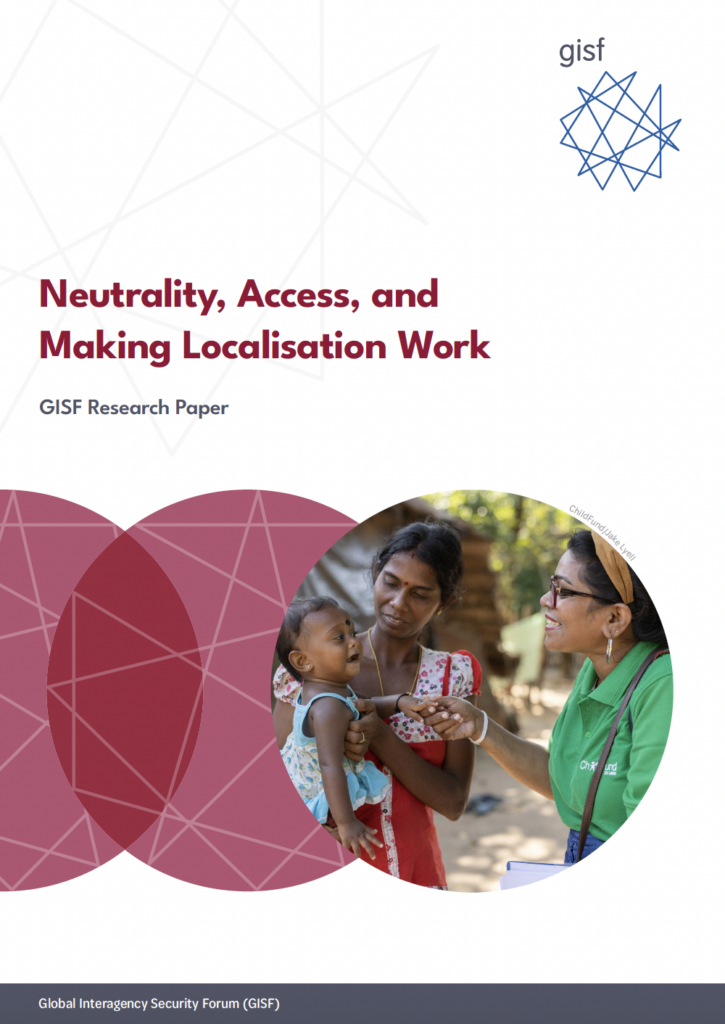Neutrality is one of the four humanitarian principles. It states that humanitarian action must not favour any side in an armed conflict or other dispute.
Despite being a central component of humanitarianism, the concept of neutrality is fraught with complexity.
This research paper explores the complications surrounding neutrality. It focuses on the intersection of neutrality with humanitarian access and acceptance-based strategies, which aim to ensure aid reaches and is willingly received by target communities. The paper also examines how collaborations between local and international organisations can improve acceptance, but may complicate perceptions of neutrality.
This report is based on 20 interviews with humanitarian practitioners and experts. Individuals included staff at both local and international NGOs, UN agencies, and more. They also spanned a range of contexts, including Afghanistan, Cameroon, Nigeria and Syria.
In addition to identifying the challenges that come at the intersections of neutrality, access and localisation, the paper also offers concrete solutions. These are divided into sections targeted at the wider humanitarian community, donors and international NGOs, and local and national NGOs.
This article is made possible by the generous support of the American people through USAID. The contents are the responsibility of GISF. They do not necessarily reflect the views of USAID or the United States Government.
